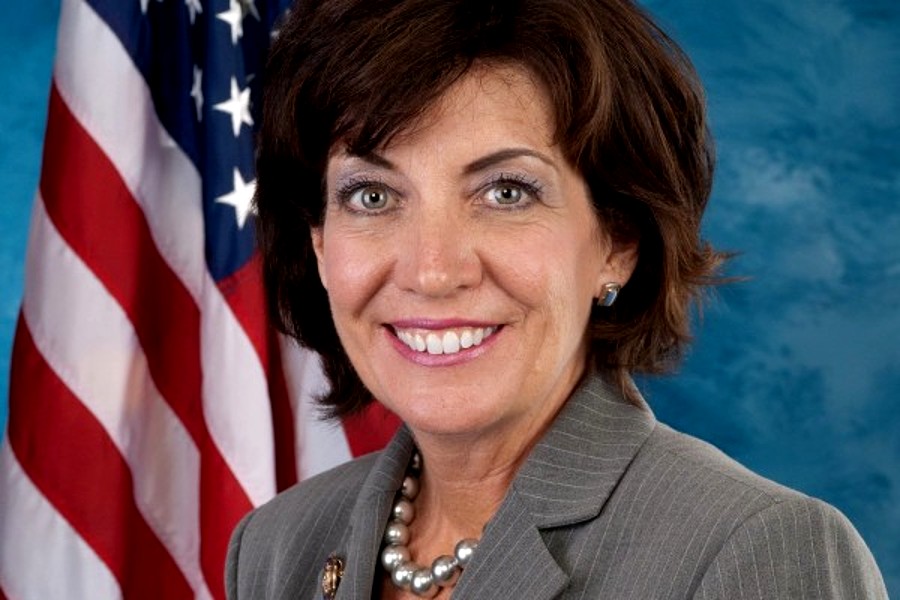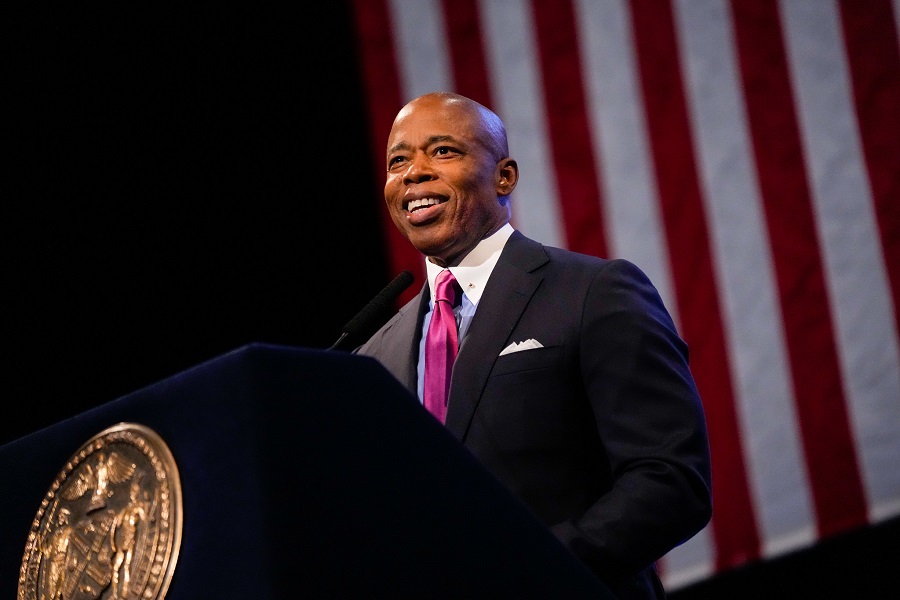
New York City Mayor Eric Adams today released the City of New York’s November Financial Plan Update for Fiscal Year 2024 (FY24).
With the city facing out-year gaps reaching levels unprecedented for this stage of the budget cycle, the Adams administration took targeted but significant and necessary steps to responsibly manage the city’s finances with minimal impact to services New Yorkers rely on and deliver a balanced budget, as required by law. The FY24 budget is $110.5 billion and remains balanced.
The November Financial Plan Update was crafted in the face of significant fiscal challenges, with the city having spent $1.45 billion on the asylum seeker humanitarian crisis in FY23 and set to spend nearly $11 billion on this crisis over just FY24 and FY25 without significant and timely state and federal support. Through strong fiscal management and with the limited fiscal tools available — including a successful Program to Eliminate the Gap (PEG) — the administration kept the FY24 budget balanced with minimum disruption to services and without raising taxes on working-class New Yorkers — despite having received limited state and federal aid.
“For months, we have warned New Yorkers about the challenging fiscal situation our city faces,” said Mayor Adams. “To balance the budget as the law requires, every city agency dug into their own budget to find savings, with minimal disruption to services. And while we pulled it off this time, make no mistake: Migrant costs are going up, tax revenue growth is slowing, and COVID stimulus funding is drying up. No city should be left to handle a national humanitarian crisis largely on its own, and without the significant and timely support we need from Washington, D.C., today’s budget will be only the beginning.”
“Our administration has a legal and fiscal responsibility to come to the table, balance the budget, and make the tough decisions today to ensure a better tomorrow for New York City,” said First Deputy Mayor Sheena Wright. “We cannot ask New Yorkers to balance their checkbooks without city leaders doing the same. These tough but necessary decisions were made to protect the city’s fiscal future while continuing to deliver vital government services. However, New York City should not carry this burden on its own. The federal and state government must play their part in delivering long-overdue support, funding, and resources.”
“By law, we’re required to balance our budget, and this November Financial Plan Update successfully does that with minimal disruptions to services,” said Chief of Staff Camille Joseph Varlack. “Our agencies have stretched dollars further than ever before to deliver as many services as possible to New Yorkers while securing our city’s financial future, and I’m grateful to the dedicated public servants who will have to do more with less as COVID stimulus dries up, tax revenue growth levels off, and the asylum seeker crisis continues to eat away at our city’s finances. But we’re not out of the woods yet, not by a long shot. If we don’t get the help we need from the federal government, we’ll have to take more drastic measures to balance our budget going forward.”
“We must balance our budget…”
“We must balance our budget in wake of the $12 billion that we project to spend as a result of the migrant crisis. Our budget has been balanced with heavy hearts. Our administration is outraged to have to implement these cuts, which are a direct result of the lack of financial support from Washington, D.C., which is derelict in its responsibility to institute a national plan to mitigate a national crisis and has instead elected to dump its job to handle this migrant crisis upon the lap of a municipality and its mayor. A national crisis demands a national solution,” said Chief Advisor Ingrid P. Lewis-Martin. “The November Financial Plan Update we are releasing today reflects those realities and continues to demonstrate our responsible fiscal stewardship of this city. I am grateful to our agencies for their efforts to find efficiencies and minimize the impact that New Yorkers will feel, but unless we get the help we need and deserve from our federal partners, things will get worse for the most vulnerable New Yorkers. The federal government should be ashamed for putting those most in need in a more dire situation where services that they depend upon are being cut.”
“…expenses from labor contracts this administration inherited …”
In August 2023, Mayor Adams laid out new projections estimating the cost of the asylum seeker crisis to grow to at least $12 billion over three fiscal years — between FY23 and FY25 — if circumstances do not change. With sunsetting COVID-19 stimulus funding, slowing FY24 tax revenue growth, expenses from labor contracts this administration inherited after being unresolved for years, and a lack of significant state or federal government action on the asylum seeker crisis, the mayor took action the following month, announcing a 5 percent PEG on city-funded spending for all city agencies with plans for additional rounds of PEGs in the Preliminary and Executive Budgets. New city-funded spending was limited to those protecting life and safety, fulfilling legal mandates, maintaining necessary operations, or generating revenue.
The FY24 budget has grown $3.4 billion since budget adoption in June, in recognition of $2.6 billion in grant funds and $776 million of better-than-expected revenue growth, primarily driven by income and sales tax collections. Outyear gaps are $7.1 billion in FY25, $6.5 billion in FY26, and $6.4 billion in FY27.
Cyber Monday 60% off Lifetime
To meet skyrocketing costs associated with care for asylum seekers, the city added $6.2 billion over FY24 and FY25 in this plan, bringing total funds budgeted for migrant needs over the two fiscal years to $10.8 billion. The administration added the following on top of previously budgeted funding: city funds of $1.4 billion in FY24 and $4.8 billion in FY25, state grants of $447 million in FY24 and $272 million in FY25, and federal aid of $10 million in FY24.
The PEG implemented by the administration in the November Financial Plan Update to keep FY24 balanced was successful, setting up the city to save $3.7 billion over two fiscal years. Every agency met its savings target.
“…By law, this gap must be closed in mid-January…”
Looking forward, asylum seeker costs in this plan contributed significantly to a historically large $7.1 billion FY25 budget gap — $2 billion greater than it was in June’s FY24 Adopted Budget — despite the successful PEG in this plan. By law, this gap must be closed in mid-January, two months from today.
- Arizona: Unstoppable Special Screening With Jerome, Cheadle And Robles And More
- Embracing The Takeout Trend: Thanksgiving Dining Reimagined
- The Fabulous Claremont Inn: Harlem’s Lost Palace Of Gilded Age Splendor, 1804 – 1950’s
- The Impact Of AI-Driven Political Software On Maximizing Fundraising Efficiency
- Sponsored Love: Luxury Villas In Dubai For Families, What To Look For
Become a Harlem Insider!
By submitting this form, you are consenting to receive marketing emails from: . You can revoke your consent to receive emails at any time by using the SafeUnsubscribe® link, found at the bottom of every email. Emails are serviced by Constant Contact









